Poodle Heavy Breathing: A Guide
Poodles are fantastic dogs. They are active, playful, and make great family pets. Many people say that once you own a poodle, you will always own poodles. No matter the size–toy, miniature or standard–they are loving and loyal.
Like all dogs, poodles can sometimes display concerning symptoms, such as heavy breathing. This can be alarming. Find out when heavy breathing is normal and when to be concerned.
Reasons Your Poodle is Breathing Heavily
There are many reasons why your poodle might be breathing heavily, some of which are perfectly normal.
Overheating
Before becoming overly concerned, consider the circumstances. Has your poodle recently been on a long walk on a warm day? Have they been actively playing and running? Have they been outside for a while on a hot day? Dogs can’t sweat like humans do in order to cool down; they do it through breathing.

You may see an open mouth, hanging tongue, and even some drool. These are signs that your dog’s body is doing what it is supposed to do: cool itself down through heavy breathing or panting.
When you see this, it may be time for a rest, some water, and a break from the heat. Once your dog’s body gets to a cooler temperature, you should see their breathing normalize again.
Excitement
Another thing to consider is that heavy breathing can simply be a sign that your poodle is excited. Heavy breathing can occur because your dog is actually happy! You will see your dog’s tail wagging, and they will have bright, clear eyes. As soon as the situation calms and the excitement wears off, you should see your poodle’s respiration go back to normal.
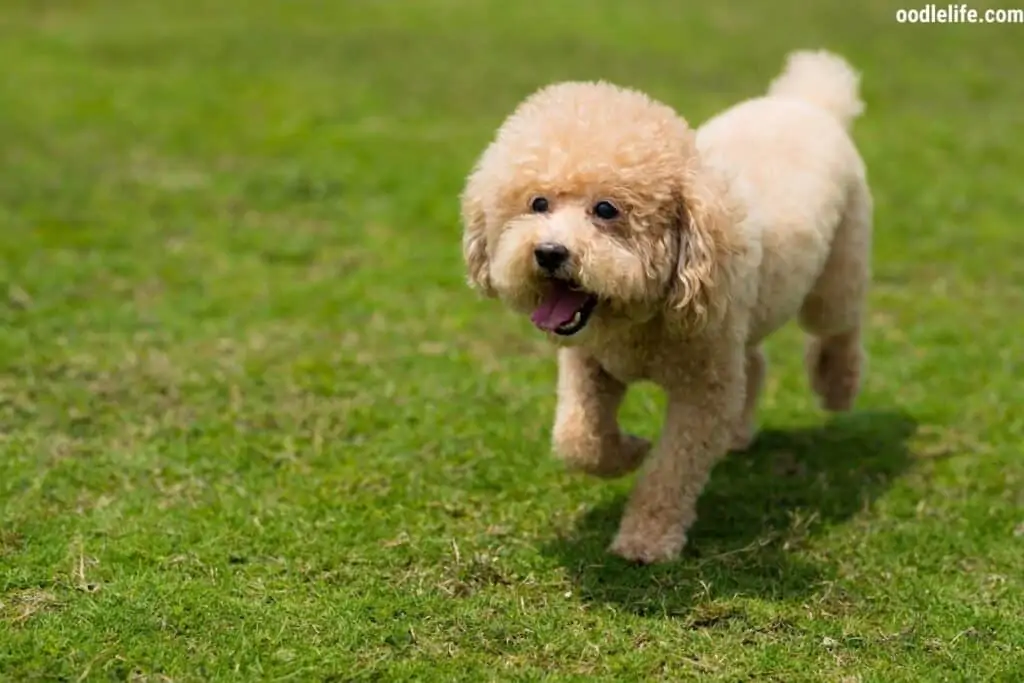
Anxiety
Sometimes dogs can become excited by fear or anxiety rather than happiness. Lots of normal things can bring this on. Vacuums, strangers, car rides, vet visits, moving boxes, and stressful events for their humans are all reasons your dog can become stressed and begin to breathe heavily.
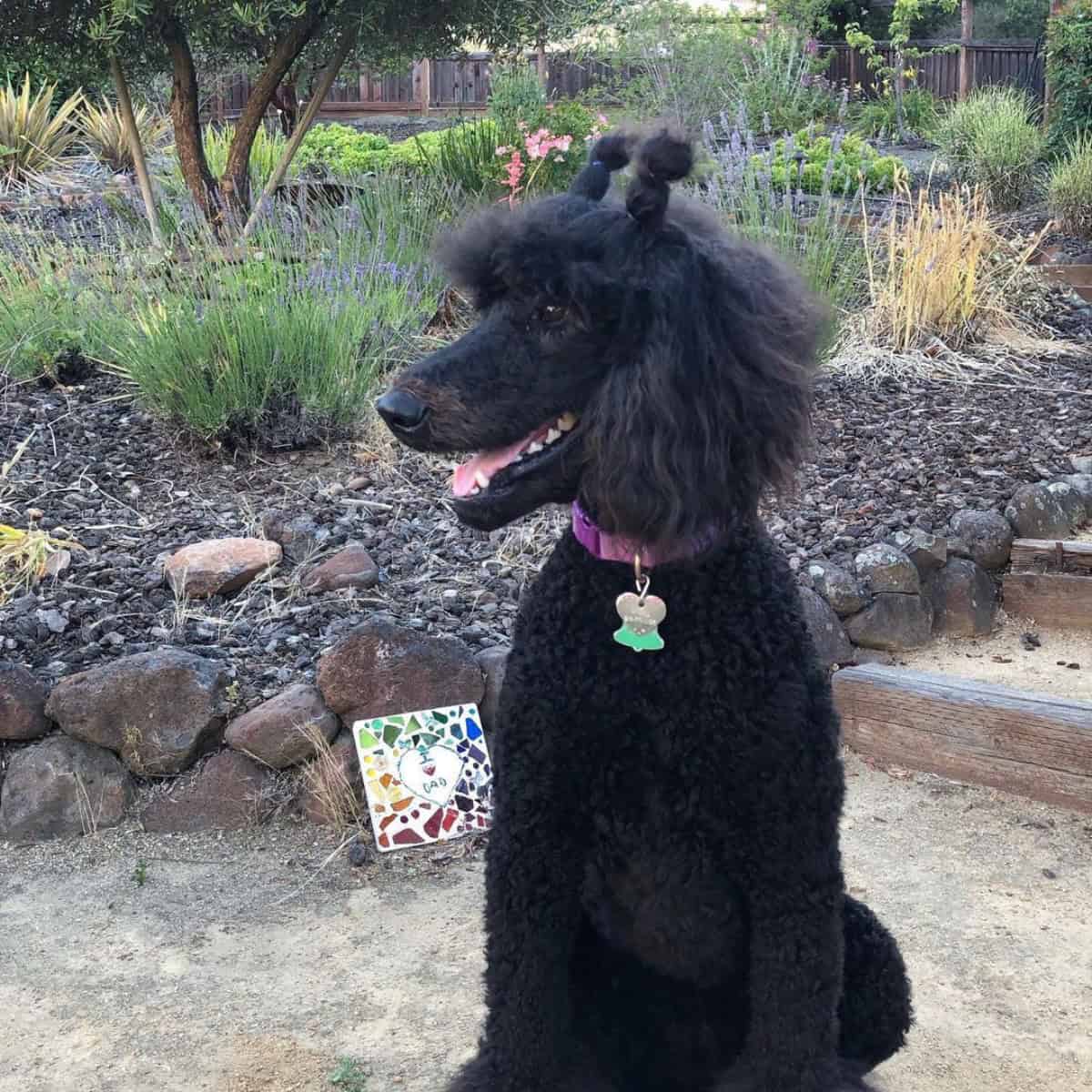
Signs your poodle is experiencing stress include, but are not limited to:
- Shivering
- Shaking
- Tail between the legs
- Lowered ears
- No eye contact
- Head turned away
When it is possible, try to either remove your dog from or get through the stressful situation as quickly as possible. Once the stress is removed, your dog’s breathing will return to normal.
Pain
Breathing heavy is a common way for vets to determine if a dog is in pain. In this case, the pain is unrelated to breathing issues, and the heavy breathing is a sign of stress from the pain. You will want to check your dog for the source of the pain. If you can’t find any visible signs and the heavy breathing doesn’t resolve, it might be time to consult your vet.
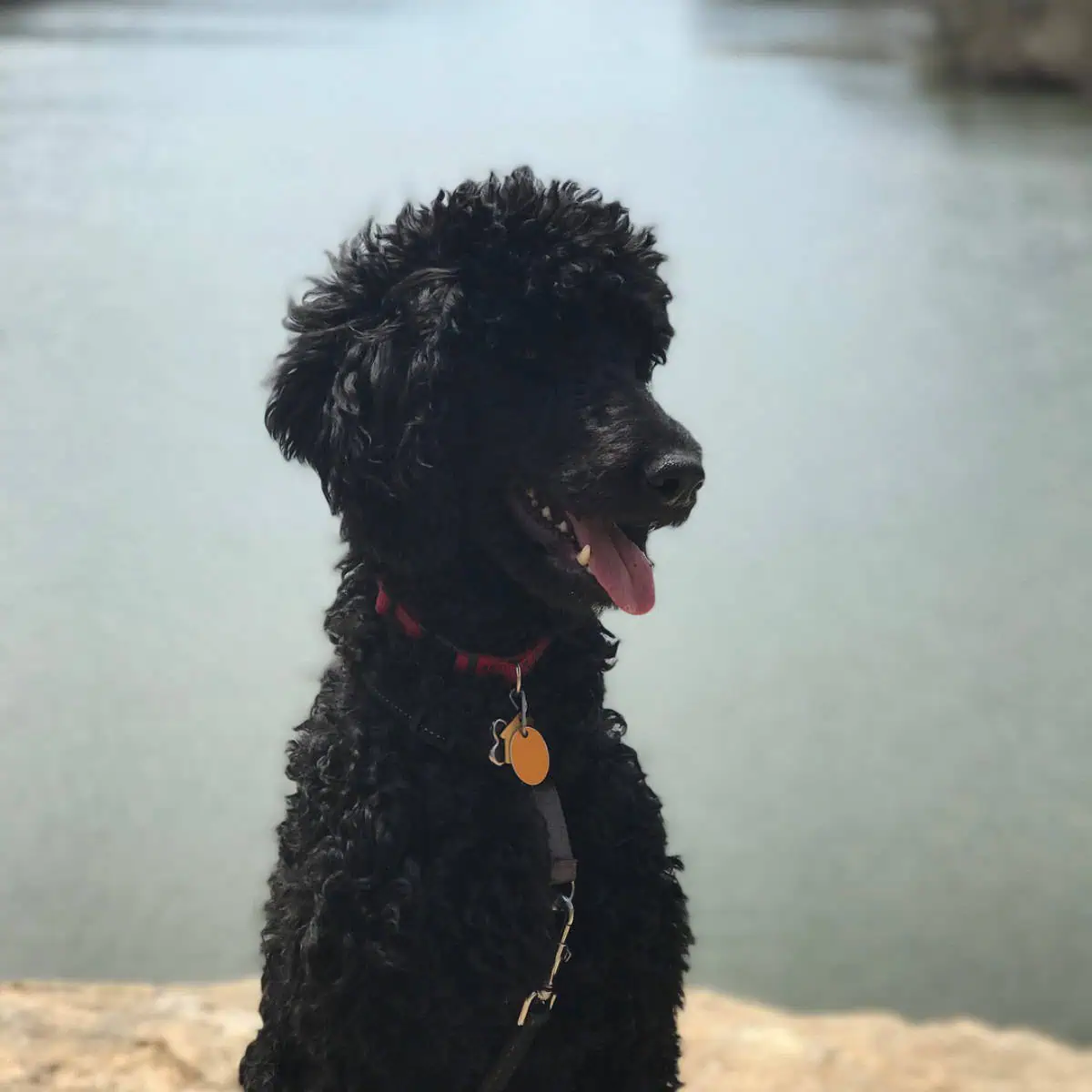
Allergies
On occasion, your dog might experience heavy breathing due to an allergic reaction. It can be from either an allergen they breathed in or something they ingested.
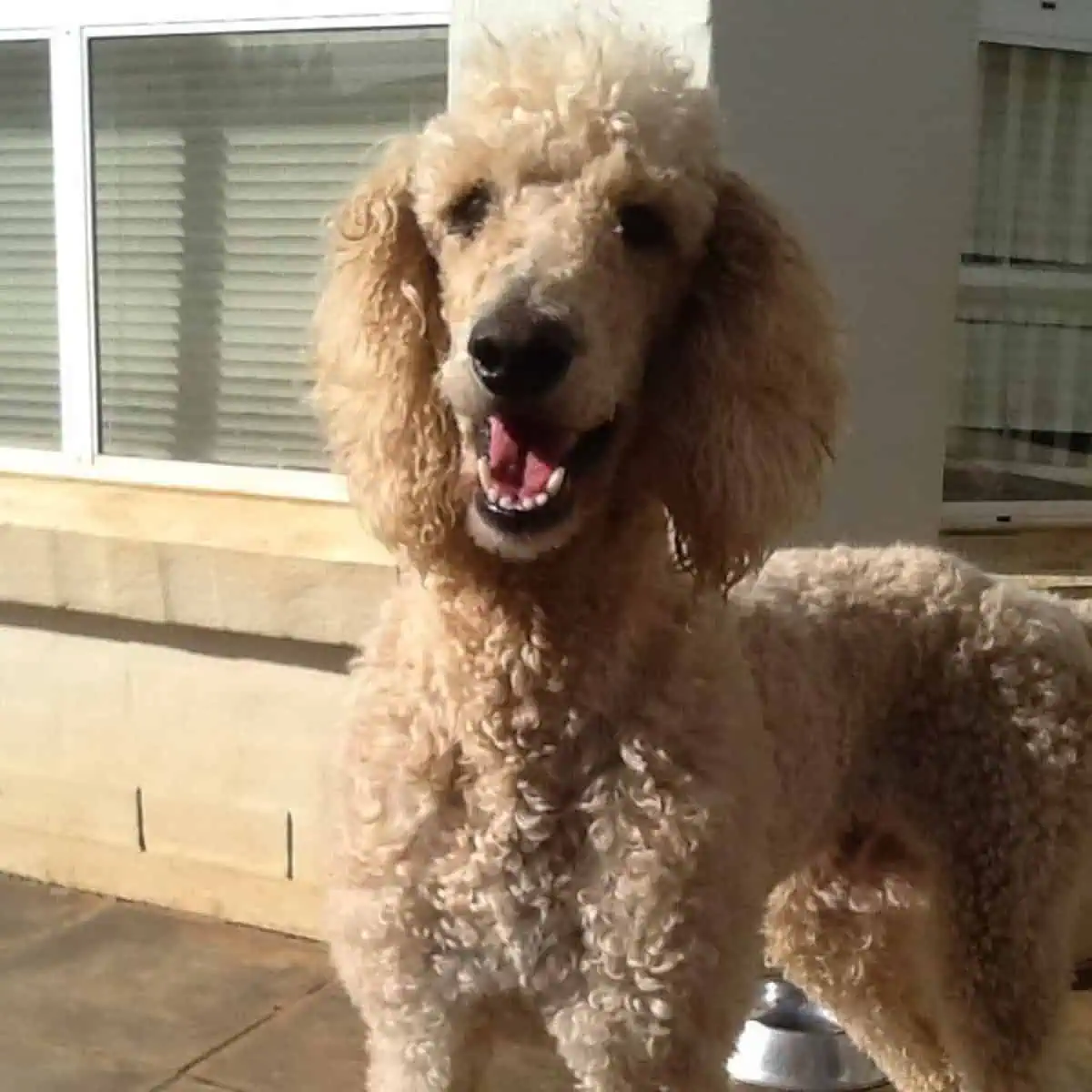
This type of heavy breathing will often resolve but can be more serious, so keep an eye out and make sure the breathing doesn’t grow increasingly labored.
Obesity
Your poodle might simply be overweight. The extra weight can cause your dog to become more stressed by physical activity, even just walking around the house. Consult your vet to get your dog on the right track for a healthy weight.
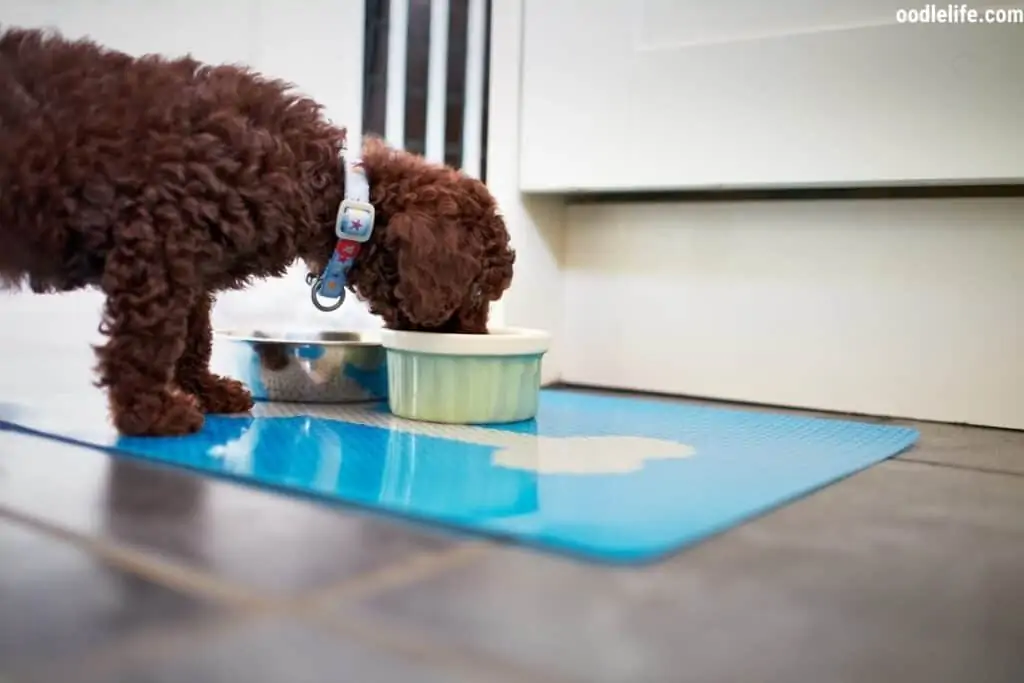
When Is It Time To Be Concerned?
While heavy breathing can be a normal response and end by resolving itself, there are times when you should be more concerned. Several more serious medical conditions can cause a poodle’s heavy breathing and need medical care.
Cushing’s Disease
Cushing’s Disease is a disorder in dogs that causes them to make too much cortisol. Cortisol is the hormone released during times of stress. Like the symptoms of stress above, having too much cortisol due to Cushing’s Disease might cause your dog to have bouts of heavy breathing.
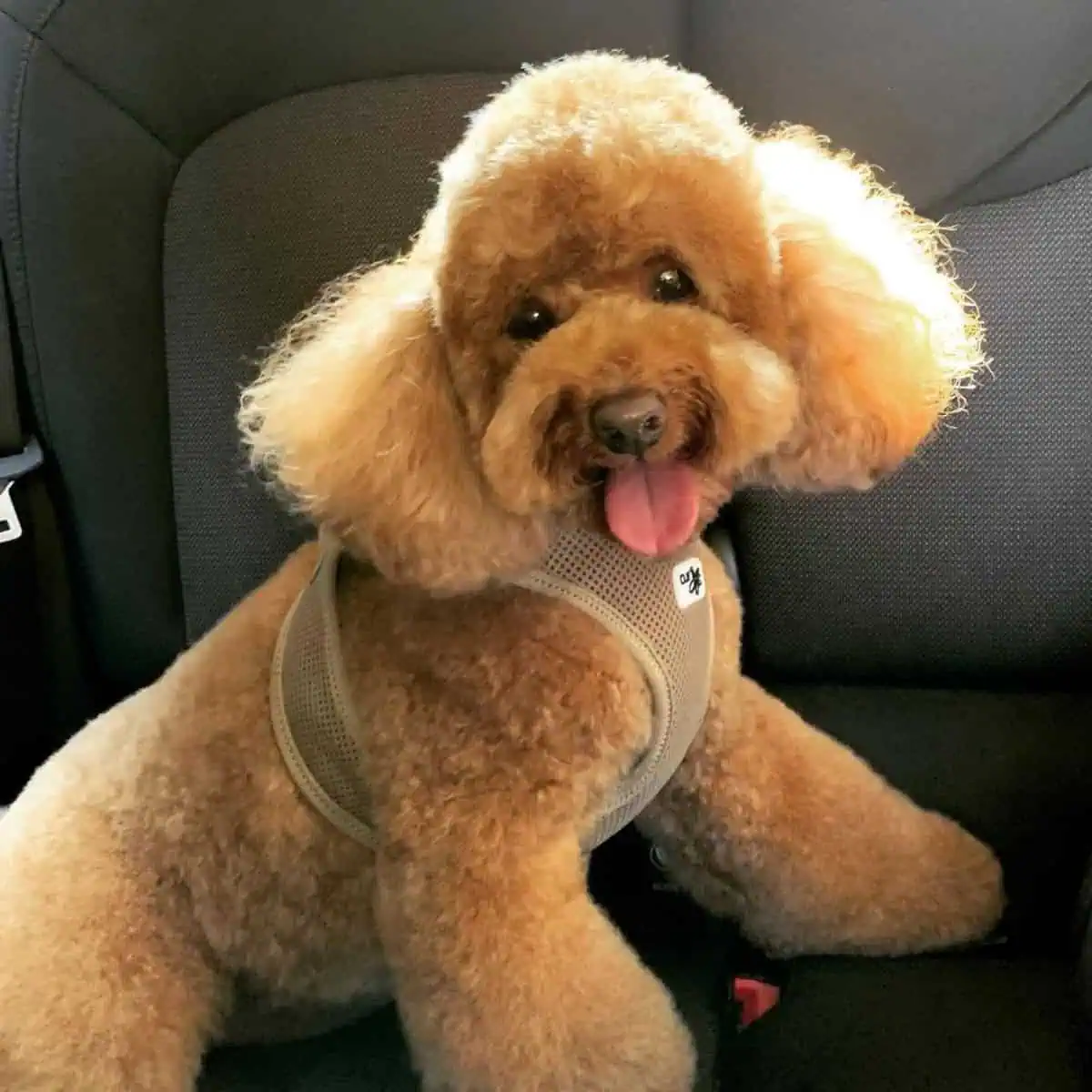
Heat Stroke
Heat stroke is a serious condition. This is when your dog has become overheated and their cooling symptom is not working to cool them down fast enough. Make sure to give your poodle water and cool them down.
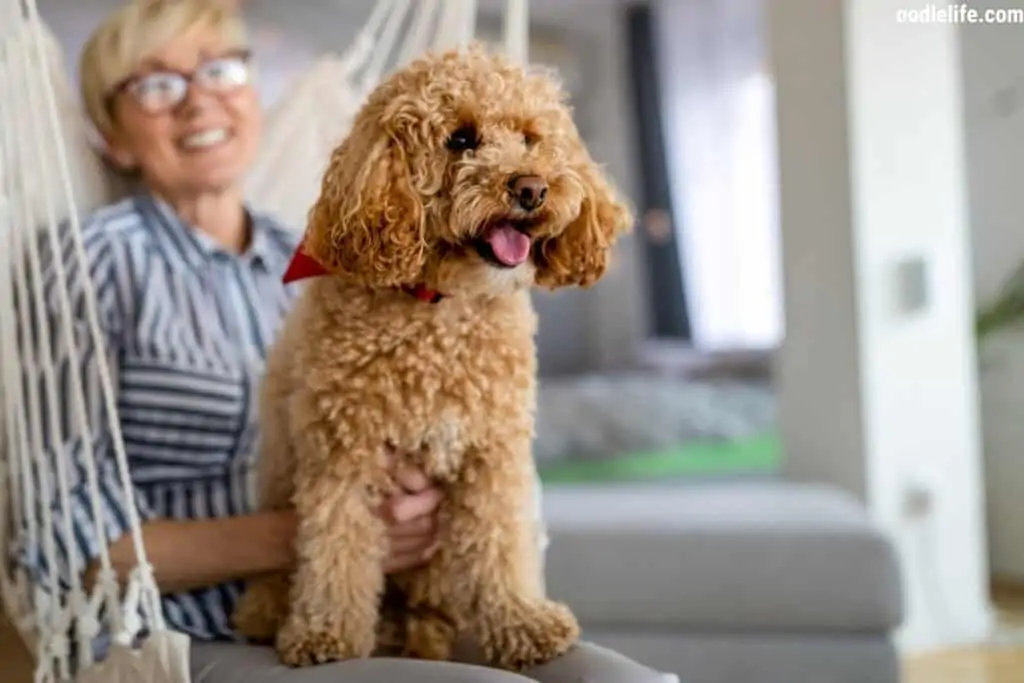
If your poodle is experiencing heat stroke, heavy breathing might be accompanied by drooling, disorientation, vomiting, diarrhea, stumbling, seizures, or a fast, irregular heartbeat. Seek medical attention immediately if your dog shows any of these signs.
Injuries and Foreign Bodies in the Chest Cavity
Sometimes dogs can sustain injuries or swallow a foreign object which then gets stuck in their breathing passageway. Heavy breathing will not resolve until they have seen a vet to care for the injury or remove the object.
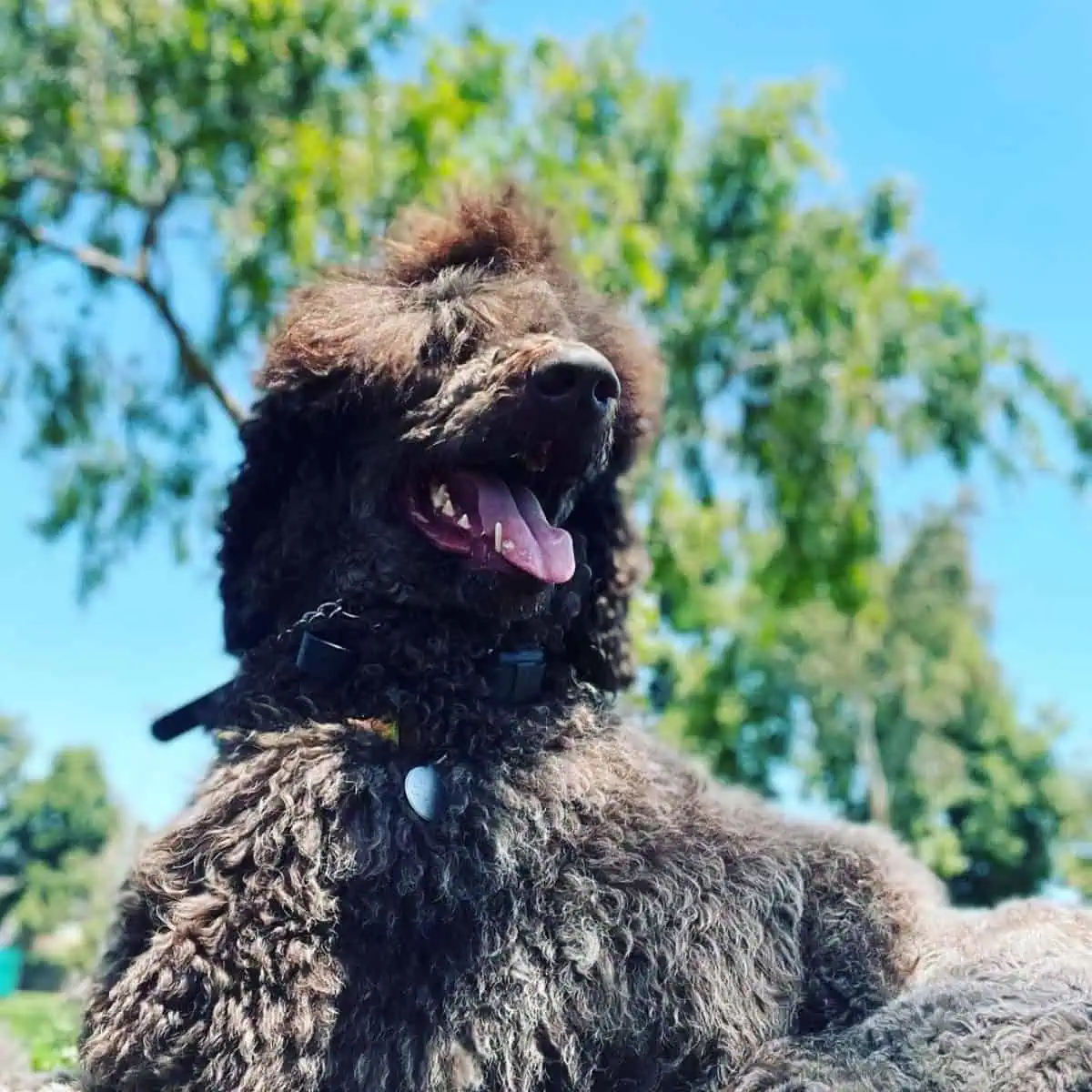
Illness
It is also possible for your poodle to have a respiratory illness such as pneumonia or bronchitis. These diseases cause inflammation in the lungs, making it more difficult to breathe. A vet can diagnose this kind of illness.
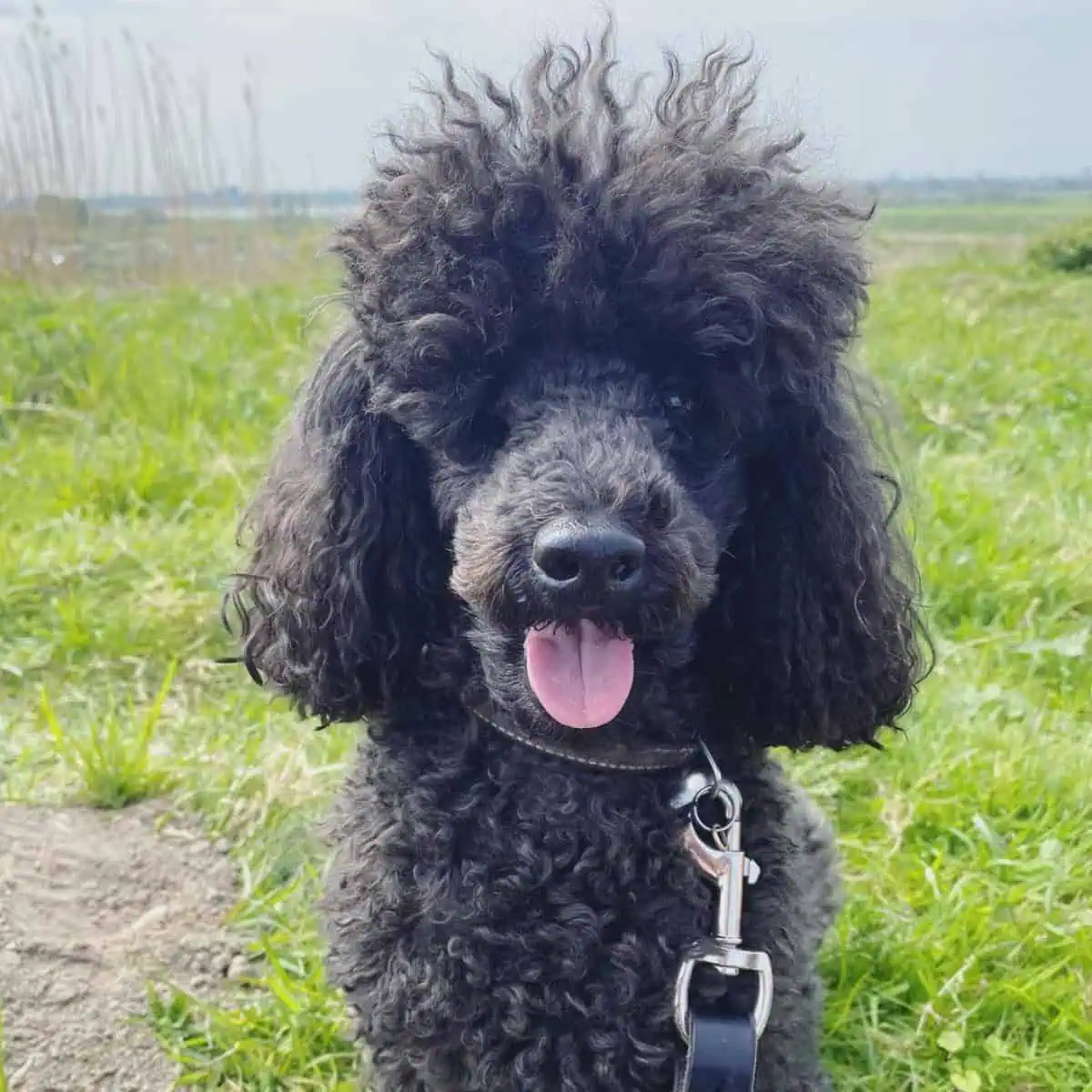
Toxins/Poisons
While this can sound pretty scary, if you are dealing with heavy breathing due to toxins, your poodle will likely have other symptoms as well. They may also drool and become unsteady on their feet. Seek medical attention immediately if you suspect your dog has ingested poison.
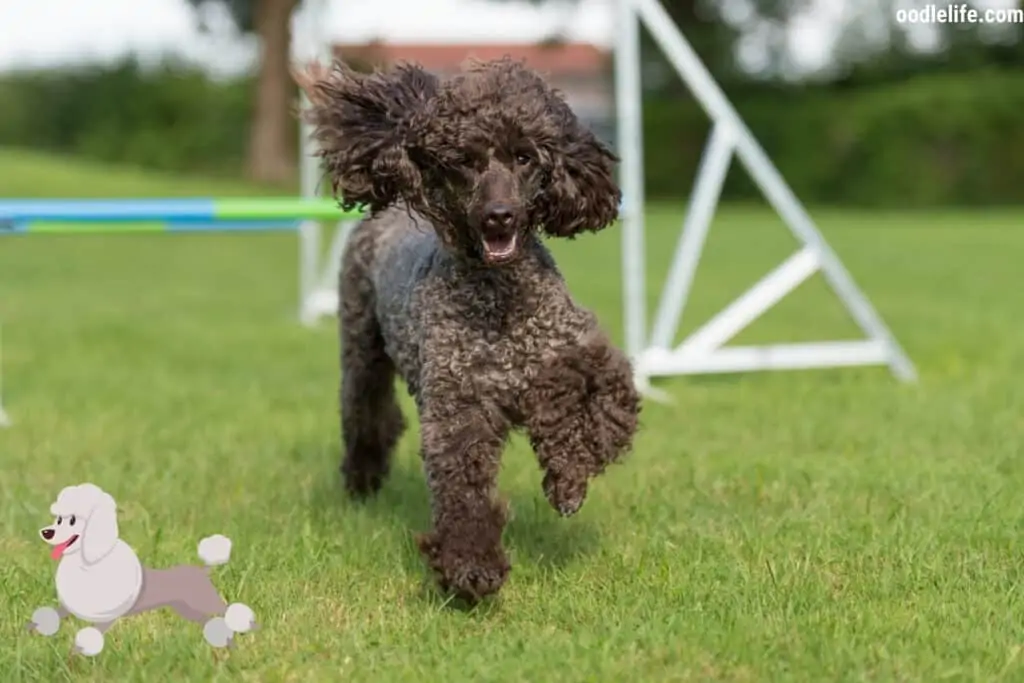
When Is It an Emergency?
It can feel intimidating to know when you have a real emergency on your hands. One sign of a real medical emergency is labored heavy breathing. When this occurs, your dog is in real respiratory distress. This kind of labored breathing is often accompanied by wheezing, crying, and whining. (Tufts University Resource)
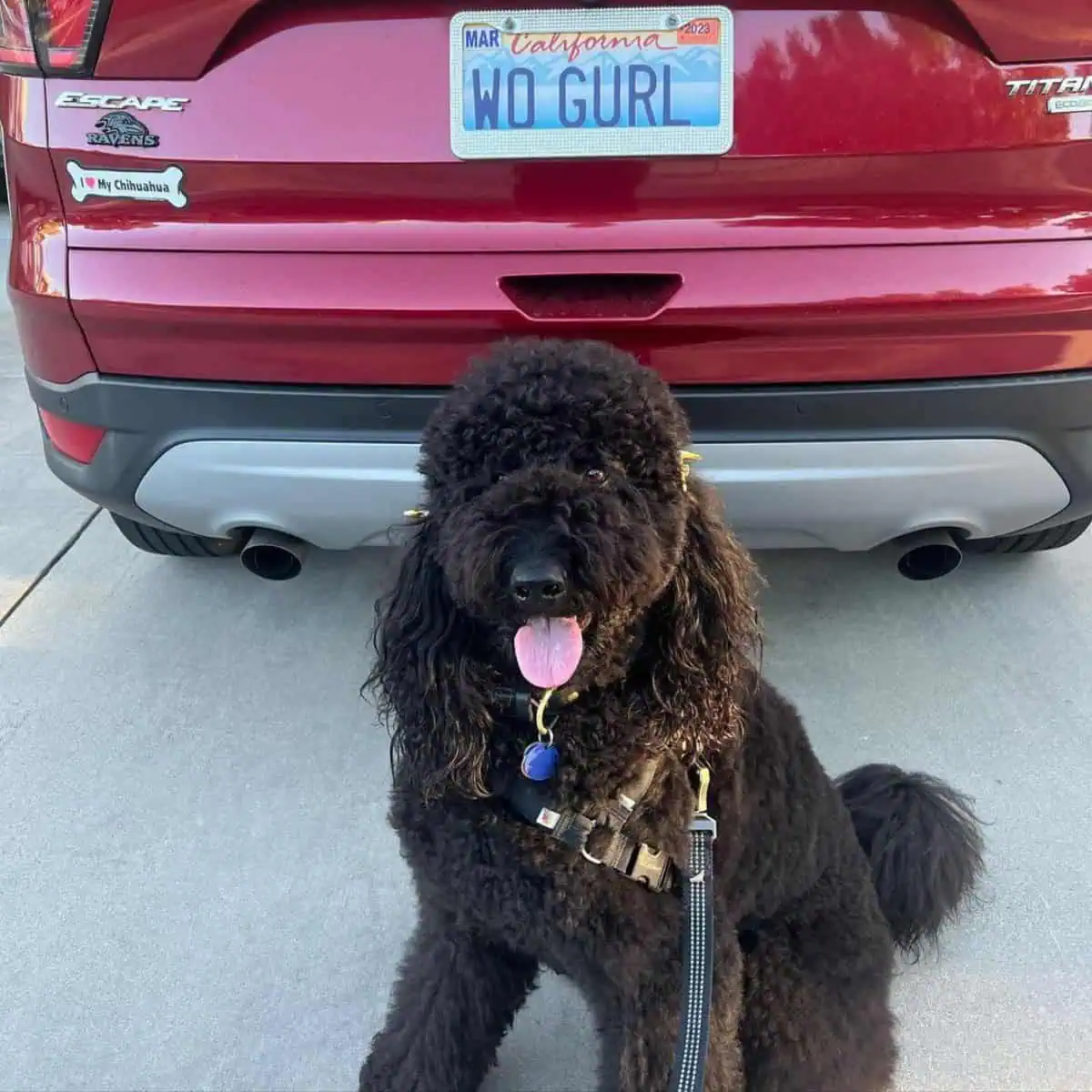
You might also notice whistling either from the windpipe or nostrils. If you see any of these signs or the heavy breathing is intense or has continued for a long time, you should get your dog to a vet as soon as possible. These may be signs that your dog is experiencing a medical emergency.
Heavy breathing could also just be a sign that your Poodle is on heat or is recovering after being spayed.
Prevention
You can take a few steps to prevent heavy breathing in your poodle. Keep fresh, cool water available for your dog at all times. This will assure your pet is well hydrated and at lower risk for overheating. Make sure to offer your dog lots of love and reassurance. A loving owner makes a confident dog.
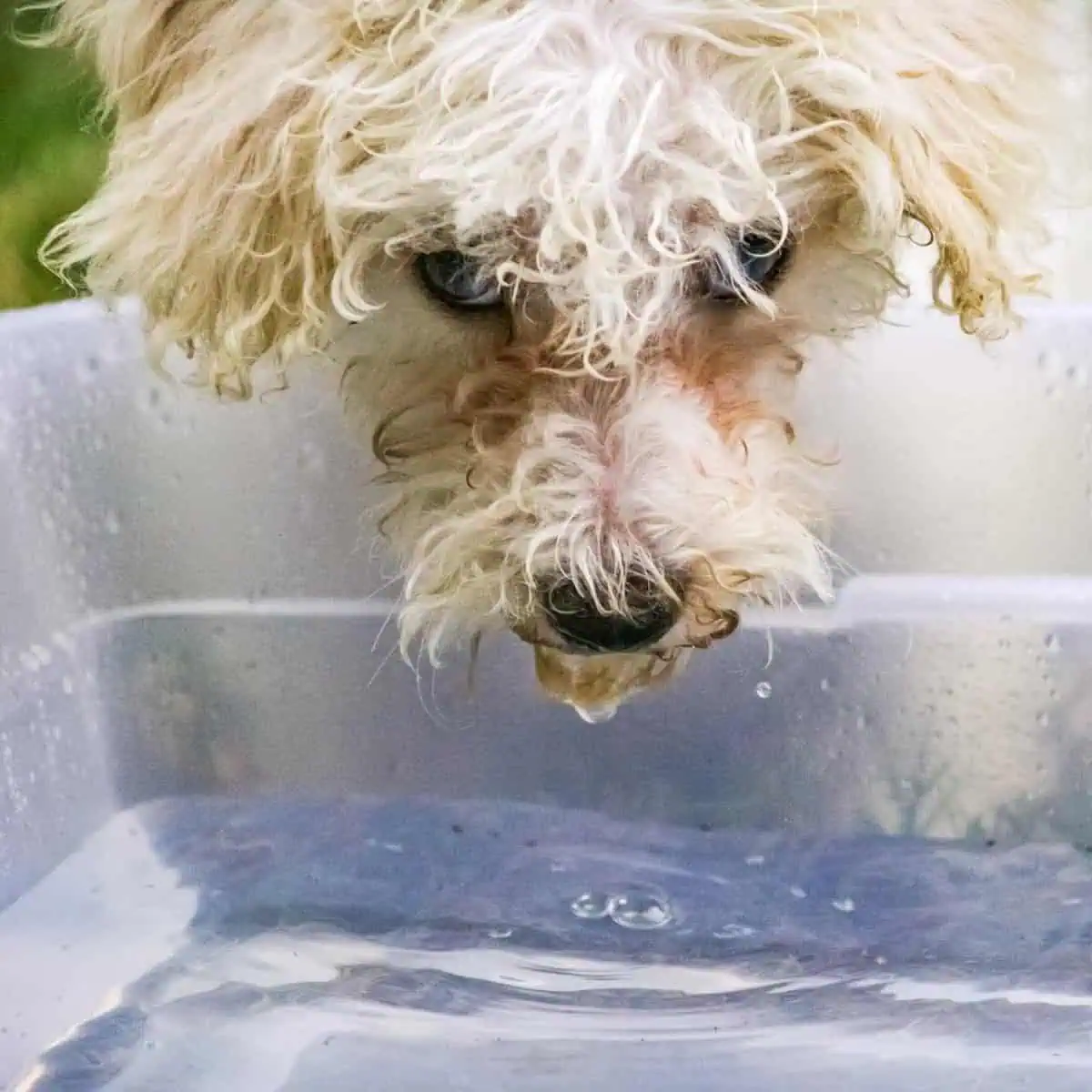
Remember that not all heavy breathing is bad. It can be your dog’s natural response to exercise as well as excitement.
Final Thoughts
Most heavy breathing in your poodle will resolve on its own and is not a need for worry. When you see signs of heavy breathing, try to identify the cause and alleviate it. Get them cooled down.
If they have encountered a stressful situation, remove them and offer them lots of comfort and reassurance. If you notice that your dog’s breathing is particularly labored, wheezy, or continues for a long period, seek medical attention immediately.